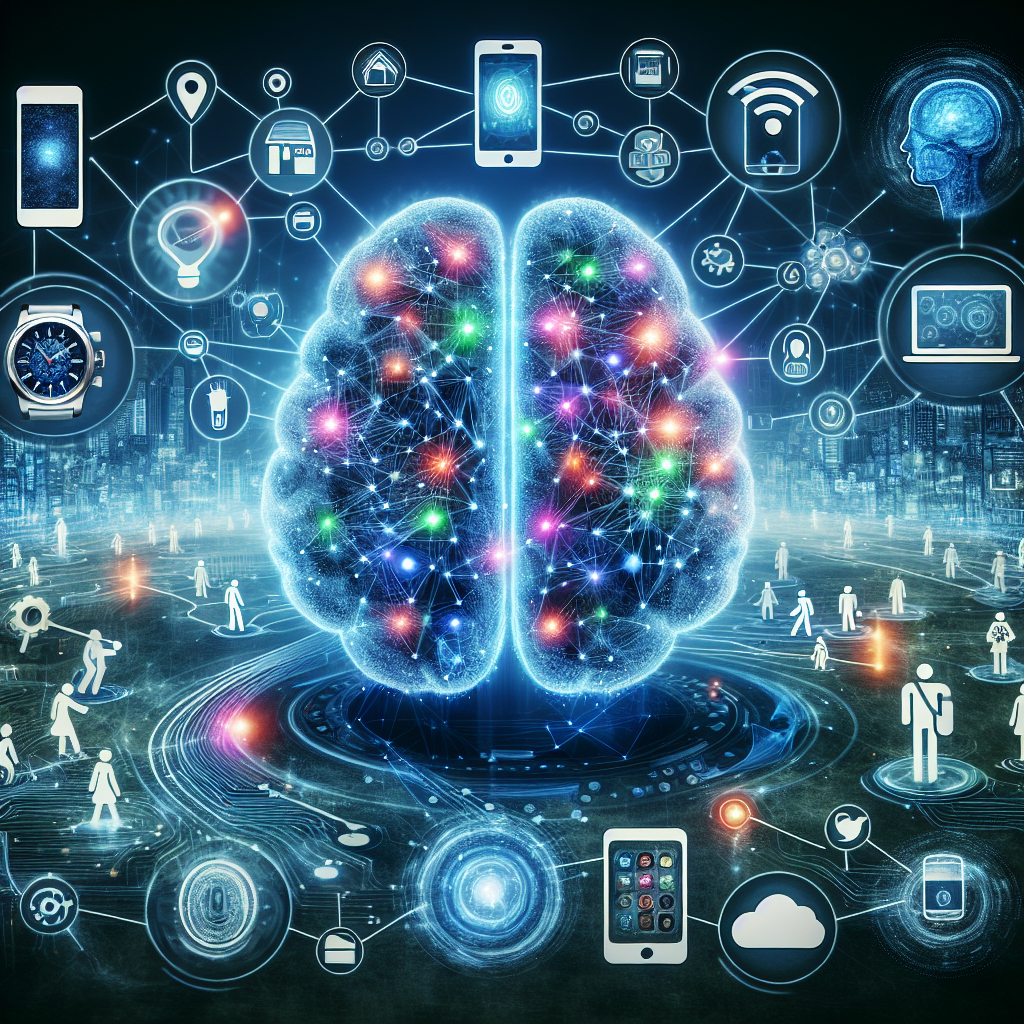[ad_1]
Introduction
In today’s rapidly evolving world, the integration of Artificial Intelligence (AI) and the Internet of Things (IoT) has ushered in a smart era that is transforming our daily lives. This convergence not only enhances convenience but also significantly improves efficiency and productivity across various sectors.
Understanding AI and IoT
What is Artificial Intelligence (AI)?
AI is the simulation of human intelligence processes by machines, particularly computer systems. These processes include:
- Learning
- Reasoning
- Self-correction
What is the Internet of Things (IoT)?
IoT refers to the interconnection of computing devices embedded in everyday objects, allowing them to send and receive data. Examples include:
- Smart home devices
- Wearable health monitors
- Smart appliances
The Synergy of AI and IoT
The integration of AI with IoT devices creates a powerful synergy that enhances capabilities and offers transformative solutions. Here’s how:
- Real-time Data Processing: AI algorithms process vast amounts of data generated by IoT devices, providing immediate insights.
- Predictive Analytics: AI can analyze historical data to predict future trends and behaviors, benefiting various sectors like healthcare, agriculture, and finance.
- Enhanced Automation: Smart devices powered by AI can automate routine tasks, leading to increased efficiency.
Transformations in Everyday Life
Smart Homes
AI and IoT are revolutionizing home automation, making it more efficient and secure:
- Smart thermostats learn user preferences and optimize energy usage.
- Security systems use AI to analyze video feeds for suspicious activity.
- Voice assistants provide hands-free control over various devices.
Healthcare Innovations
In healthcare, the combination of AI and IoT has led to remarkable advancements:
- Wearable devices monitor health metrics in real-time, providing data to healthcare providers.
- AI algorithms can detect patterns in health data, predicting potential diseases.
- Telemedicine solutions enable remote consultations aided by AI diagnosis tools.
Smart Cities
The synergy between AI and IoT plays a crucial role in developing smart cities:
- Traffic management systems optimize flow and reduce congestion using AI data analysis.
- Smart waste management systems make garbage collection efficient and eco-friendly.
- Public safety applications use AI to enhance responses to emergencies.
Data Insights
Here are some compelling statistics highlighting the impact of AI and IoT:
| Sector | AI Market Growth (2023) | IoT Connections (2023) |
|---|---|---|
| Healthcare | $36 billion | 7 billion |
| Retail | $25 billion | 5 billion |
| Manufacturing | $22 billion | 40 billion |
Challenges and Considerations
Despite the numerous benefits, the integration of AI and IoT also presents several challenges:
- Data Privacy: Increased data collection leads to privacy concerns.
- Security Risks: IoT devices are vulnerable to hacking.
- Interoperability: Different systems may not communicate seamlessly.
Conclusion
The synergy between AI and IoT is undeniably transforming our everyday lives, making them smarter and more efficient. From smart homes to innovative healthcare solutions, the impact is profound and far-reaching. As challenges continue to emerge, addressing them through careful planning and robust technology will pave the way for a smarter future.
“The future belongs to those who believe in the beauty of their dreams.” — Eleanor Roosevelt
FAQ
1. What is the main difference between AI and IoT?
AI refers to the simulation of human intelligence in machines, while IoT connects physical devices to the internet, allowing them to collect and exchange data.
2. How does AI enhance IoT devices?
AI enhances IoT devices by providing advanced data processing capabilities, enabling predictive analytics, and automating decision-making processes.
3. What are some examples of AI in healthcare?
Examples include diagnostic tools that analyze medical images, wearables that monitor patient vitals, and AI algorithms that predict outbreaks based on data trends.
4. Are there any security concerns with smart devices?
Yes, IoT devices can be susceptible to hacking and data breaches, necessitating strong security measures.
5. How will AI and IoT change the future?
They are expected to enhance efficiency, improve decision-making, and create a more connected world, ultimately transforming various sectors and everyday life.
[ad_2]
